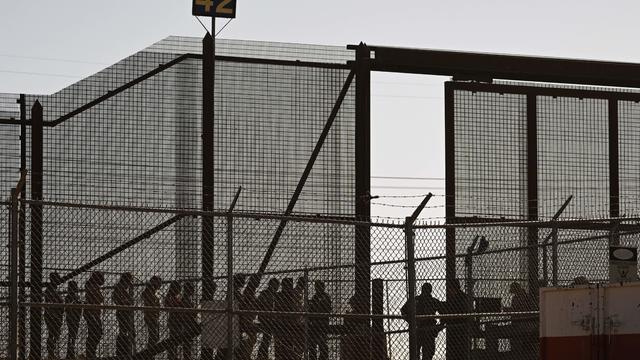
Nurse denied ambulance requests before migrant child died, officials say
Anadith Danay Reyes Alvarez, who suffered from sickle cell anemia and heart disease, died after she and her family spent over a week in Border Patrol custody.
Watch CBS News

Camilo Montoya-Galvez is an award-winning reporter covering immigration for CBS News, where his reporting is featured across multiple CBS News and Stations platforms, including the CBS News 24/7, CBSNews.com and CBS News Radio.
Montoya-Galvez is also part of CBS News' team of 2024 political campaign reporters.
Montoya-Galvez joined CBS News in 2018 and has reported hundreds of articles on immigration, the U.S. immigration policy, the contentious debate on the topic, and connected issues. He's landed exclusive stories and developed in-depth reports on the impact of significant policy changes. He's also extensively reported on the people affected by a complex immigration system.
Before joining CBS News, Montoya-Galvez spent over two years as an investigative unit producer and assignment desk editor at Telemundo's television station in New York City. His work at Telemundo earned three New York Emmy Awards.
Earlier, he was the founding editor of After the Final Whistle, an online bilingual publication featuring stories that highlight soccer's role in contemporary society.
He was born in Cali, Colombia's third-largest city, and raised in northern New Jersey.
He earned a bachelor's degree in media and journalism studies/Spanish from Rutgers University.

Anadith Danay Reyes Alvarez, who suffered from sickle cell anemia and heart disease, died after she and her family spent over a week in Border Patrol custody.
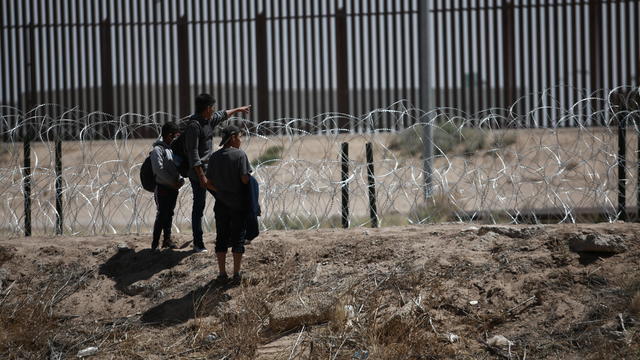
The rules ban many migrants from asylum if they don't wait for an appointment to enter the U.S. at an official border crossing.
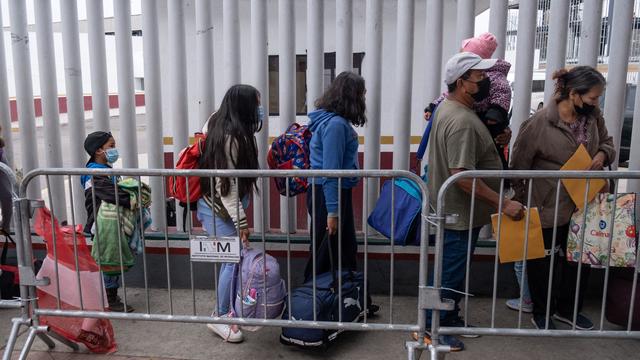
U.S. officials are preparing to distribute 1,250 appointments each day to migrants in Mexico so they can present themselves at ports of entry for an opportunity to be allowed to seek asylum.

More than 20 states have legalized recreational use of marijuana, but the drug remains an illicit substance under federal law and regulations.

Any move to end birthright citizenship for children of immigrants living in the U.S. without permission is all but certain to face legal challenges.

After his promotion in 2021, Ortiz became a major figure in the government's efforts to address an unprecedented migration crisis along the U.S.-Mexico border.

Any move to end birthright citizenship for children of immigrants living in the U.S. without permission is all but certain to face legal challenges.
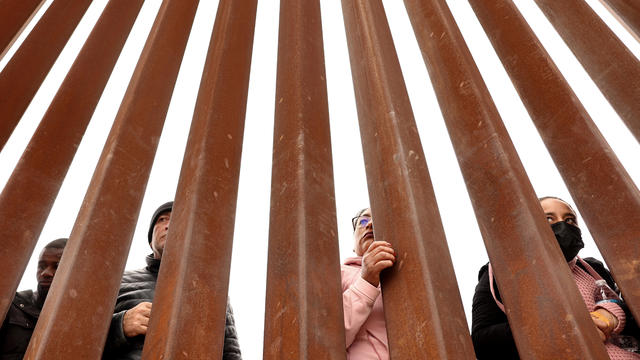
The Biden administration has succeeded in uniting progressives and conservatives on one issue — they both hate its new policy at the U.S.-Mexico border.
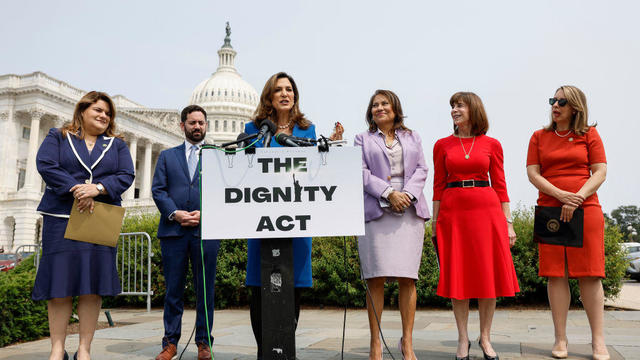
Like other comprehensive immigration bills, the proposal by Reps. María Elvira Salazar and Veronica Escobar faces steep odds in a deeply divided Congress.
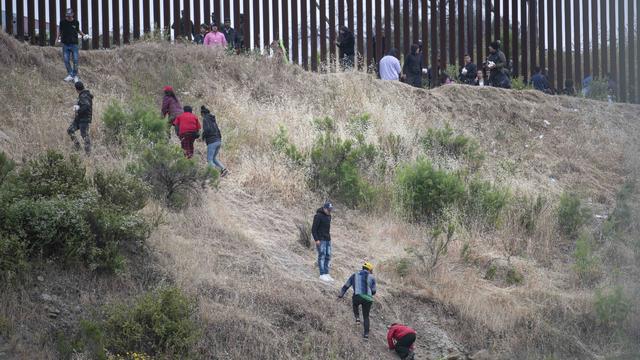
The program is designed to discourage migrants from crossing the U.S. border illegally, but the soaring number of applications has yielded "significant" wait times.
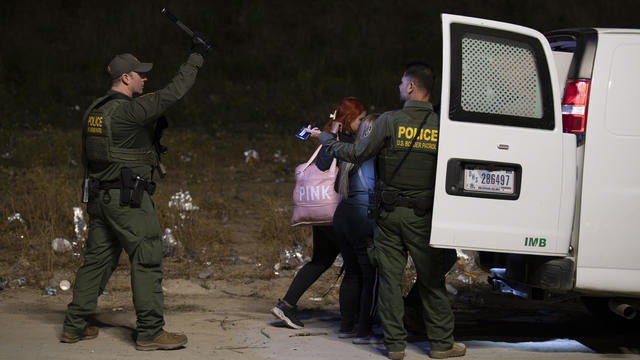
Anadith Tanay Reyes Alvarez, 8, died on May 17 after spending more than a week in Border Patrol custody alongside her parents and siblings.
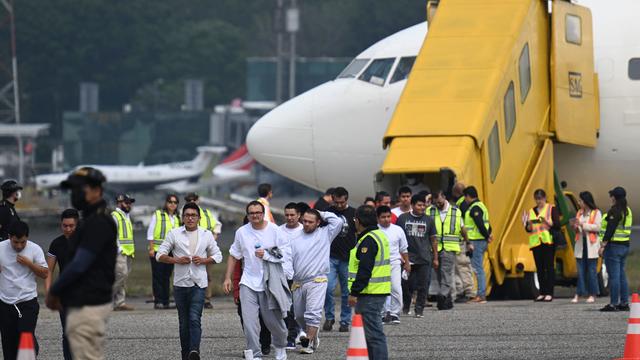
Officials have said the increase in formal deportations has contributed to a sharp drop in the number of migrants crossing into the U.S. unlawfully.
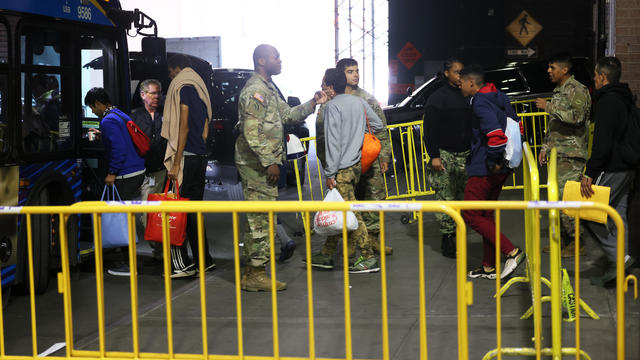
In over a year, Texas has transported more than 19,000 migrants to Washington, D.C., New York City, Chicago and Philadelphia on over 400 buses.
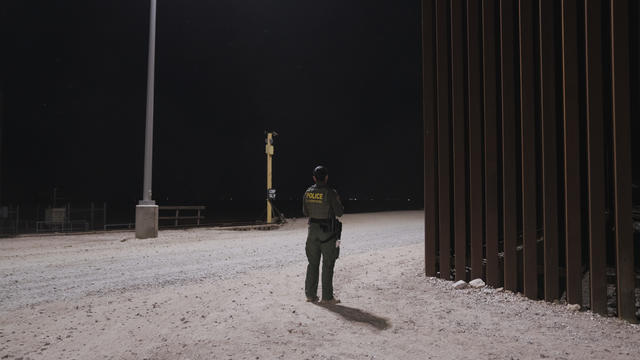
The girl's death marks the first known death of a migrant child in Border Patrol custody since the Trump administration, when several minors died.
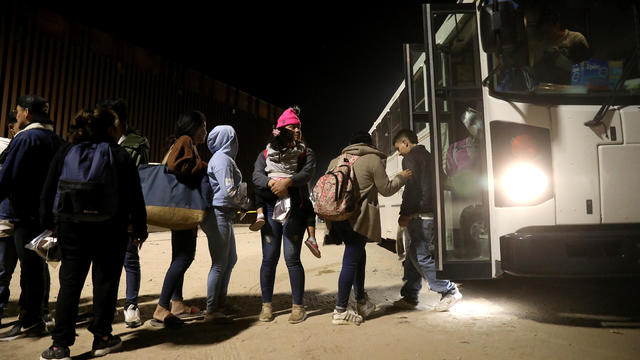
Biden administration officials have attributed the sharp drop to increased deportations, tighter asylum rules and efforts by other countries to stop U.S.-bound migrants.